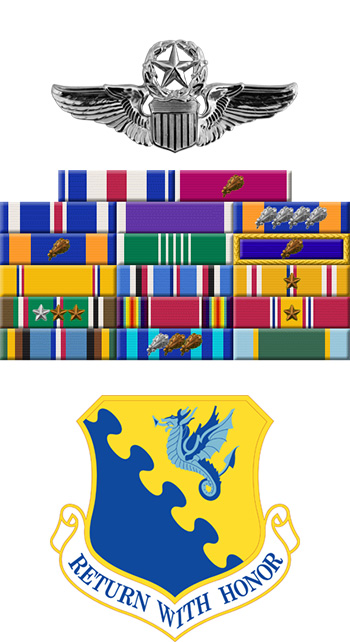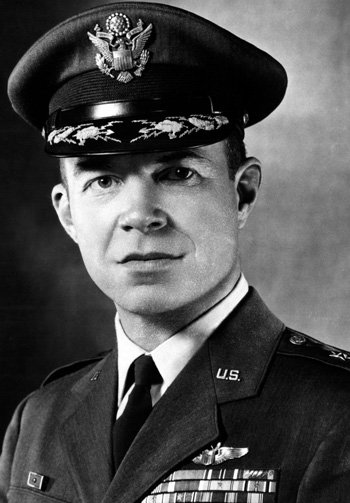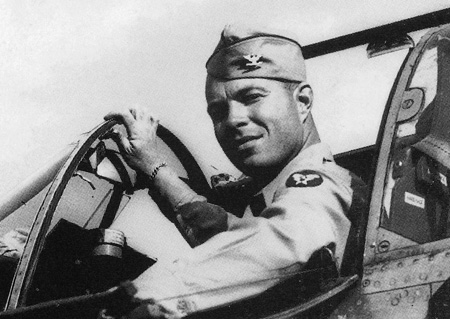
|
Charles M. McCorkle |
 |
|||
| Rank, Service | ||||
Major General O-8, U.S. Air Force |
||||
| Veteran of: | ||||
|
||||
| Tribute: | ||||
Sandy McCorkle was born on January 29, 1915, in Newton, North Carolina. He entered the U.S. Military Academy at West Point in 1932, and graduated with a commission as a 2Lt in the Air Corps on June 12, 1936. McCorkle was awarded his pilot wings in October 1937 and was assigned to the 24th Pursuit Squadron at Albrook Field in the Panama Canal Zone from February 1938 to February 1940. He next served as a squadron commander with the 35th Pursuit Group and later as deputy group commander between February 1940 and June 1942. McCorkle was then assigned as the Commander of the 54th Fighter Group and participated in the Aleutian Islands Campaign in Alaska between June and December 1942. He next commanded the 31st Fighter Group in Sicily from July 1943 to July 1944, and was credited with the destruction of 11 enemy aircraft in aerial combat in the Mediterranean Theater. Col McCorkle then served as chief of staff of the 1st Fighter Command at Mitchel Field, New York, before being assigned as deputy chief of the Flight Test Division at Wright Field, Ohio, in January 1946. After completing Armed Forces Staff College, Col McCorkle became chief of staff of the Newfoundland Base Command at Fort Pepperrell in Newfoundland, Canada, where he served from July 1947 to June 1949. He then completed Air War College and then served on its faculty between June 1950 and July 1953. After attending the National War College, McCorkle served as deputy assistant chief of staff for guided missiles and then assistant chief of staff for guided missiles at the Pentagon from July 1954 to July 1959, when he was made commander of the Air Force Special Weapons Center at Kirtland AFB, New Mexico, where he served until July 1962. From July 1962 to September 1965, Gen McCorkle served as Vice Commander of 5th Air Force at Fuchu Air Station, Japan. He was then assigned as Assistant Deputy Chief of Staff for Programs and Resources at the Pentagon, where he served from September 1965 until his retirement from the Air Force on October 1, 1966. Charles McCorkle died on August 24, 2009, and his ashes were spread into the Pacific Ocean at Point Lobos, California. |
||||
|
||||


